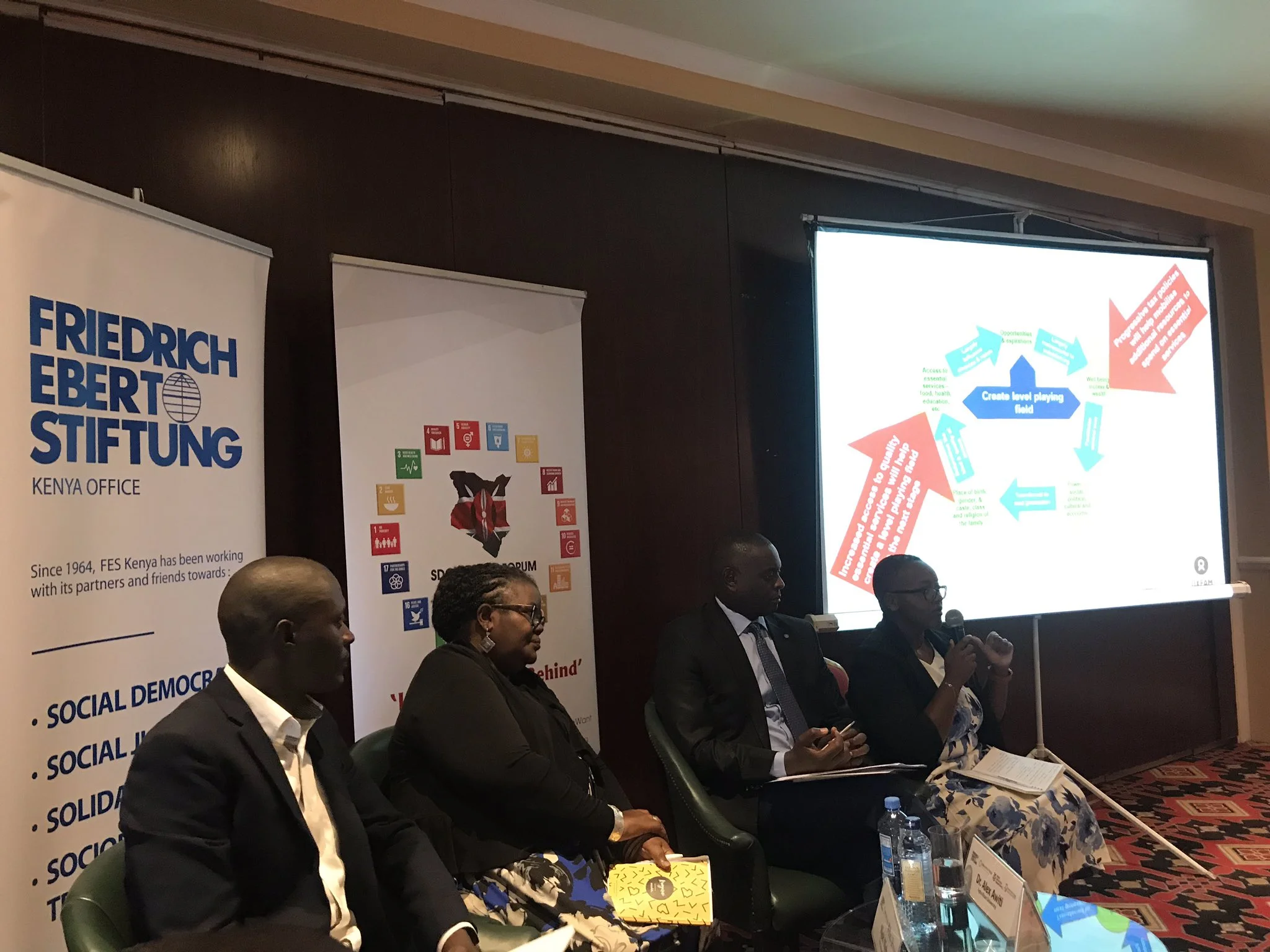The Sustainable Development Goals include goals on decent work, peace and inequality while also vowing to end violence against women and girls, human trafficking and dangerous climate change. A stand-alone goal on inequality (SDG10) is a clear demonstration that fighting inequality shall be at the centre of national and global development agendas. By referencing within and among nations, SDG 10 highlights how much inequality is a challenge for every country and not just the developing ones.
Inequality is related to several challenges that include poverty, persistent unemployment, conflict, violence and instability against women and environmental degradation, just to mention a few. The implementation of the MDGs contributed significantly towards progress in addressing inequality, especially when it comes to inequality between different countries. There has been a significant reduction in poverty, which means that 750 million fewer people are now living on less than $1,90 per day while gender equality has made some gains with more girls being enrolled in school in the developing countries. However, data shows there is an increase in income inequality within both developing and developed countries. In fact, income equality rates are at their highest levels for the last half century.
Dealing with internal country inequalities requires enhanced fiscal and policy space to enact country-specific policies necessary for improving the lives of everyone, especially the income and financial outlook of the poor people.
The two main variables in this context will be wages and jobs. The creation of decent jobs is the best way of sustainably deal with poverty, particularly where the labor force is rapidly expanding. Decent jobs would also mean increasing wages of workers, which would also expand domestic demand, progressively viewed by experts as a key component of sustainable growth. Countries, therefore, must create the type of productive capacity and infrastructure that results in more diversified economies and decent job creation, in particular leaving the overdependence on single commodities and attaining some level of progress in more complex industrial activities.
In the spirit of the Sustainable Development Goals and “leave no one behind, Friedrich-Ebert-Stiftung, Kenya Office, SDGs Kenya Forum, GCAP Kenya and Marie-Schlei-Verein invited The Youth Cafe and 30 other participants drawn from policy makers, civil society organizations, women movements, legislators, trade unions, media, academia and the media to a consultative workshop on SDG 10 as a constructive and dynamic space where lines of collective inquiry and effort are realized. The workshop took palce at Sarova Hotel, Nairobi on 18th of February.
The workshop aimed:
(i) To define inequality and identify its attributes (causes) within the context of Agenda 2030 for sustainable development
(ii) To Assess progress of the implementation of SDG 10 to date in Kenya, achievements and gaps
(iii) To identify key recommendations for dissemination during the 2019 HLPF
(iv) To influence the inequality discourse at other UN commissions and other gatherings apart from the
HLPF, including Commission on Social Development, Commission on the Status of Women, European
Development Day (EDD) etc.

